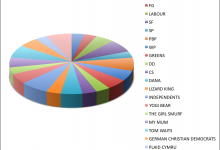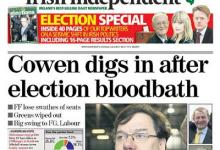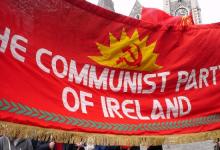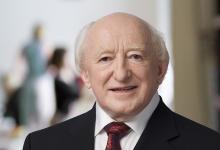Our moral duty to lie to pollsters
Week three of the 2011 general election is now underway, and the agenda is still largely dominated by the state of Ireland's beleaguered economy. Econospeak has overtaken Irish as our second most popular language, and the front pages are still filled with stories of bailouts, banks, bondholders, budgets and Brussels. The other big issue of the election, political reform, occasionally gets a look in, but the broadsheets are dissecting daily the minutiae of our economic situation - and with good reason.







